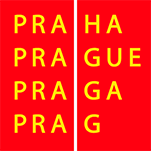The City of Prague has recorded a significant success with its pilot project of renting out public flats through transparent electronic auctions. This innovative approach brings a number of benefits for both the city and those interested in housing, and represents an important step in the modernisation of the management of the city's housing stock.
Significant rent increases and efficient asset management
Of the ten apartments offered in the historic centre, eight units were rented out, with prices achieved well above the asking price. The most impressive increase was recorded for a 1+1 apartment in Lublaňská Street, where the final price per m2 exceeding CZK 17,000 more than doubled the original asking price of CZK 7,500.
"Electronic auctions have opened up the possibility of obtaining rental housing in the capital for residents who can afford market rents. The rents auctioned in this way mean millions of financial benefits annually, which will help support, for example, social housing," says Alexandra Udženija, Deputy Mayor of the capital city. Prague's Assistant Mayor for Social Affairs, Housing and Health.
Successful implementation across districts
Parallel to the above-mentioned activities, electronic rent auctions are being deployed and upgraded in some municipalities: the automatic generating of variable deposit symbols was introduced in Prague 2, eliminating a common source of errors in transfers. The system automatically checks compliance with the conditions and provides participants with immediate feedback on the status of their application.
The Prague 6 municipality launched its own auction platform with a single interface for registration, viewing properties and participating in auctions. An innovative feature is the synchronization of the auction calendar with the maintenance processes of the apartments - each offered unit undergoes a complete renovation according to a standardized catalogue of modifications before being included in the auction.
Economic impacts and future development
According to the analysis of the Rental Housing Association, the introduction of electronic auctions has led to a differentiation of rents depending on the size of the apartments. Paradoxically, the auctions have been shown to stabilise rents in the medium term, as contracts concluded through this system have fixed annual indexation clauses in the range of 3-5%.
By the end of 2025, the municipality plans to link the auction system to the national real estate register, which will allow automatic verification of participants. In parallel, the integration of AI predictive models that can estimate the optimal bidding price with 92% accuracy based on 78 parameters is being tested.
Balance between commercial and social aspects
Critics warn that the e-auction system may be squeezing low-income groups out of lucrative locations. The municipality has responded to this by introducing a mandatory share of so-called social auctions, where 15% of the apartments in each locality are subject to a price cap and special qualification criteria.
As Deputy Mayor Alexandra Udženija said, "After the evaluation of the first ever round of electronic auctions, we will prepare the next rounds. Every year the capital prepares a few dozen apartments for this form of renting. These are apartments that, due to their layout or location, are not suitable for social housing, for example. Prague offers standard flats intended for the elderly, the disabled or for the so-called supported professions, and now also for young families. However, it is important to offer housing for other groups of people who are interested in renting an apartment on the market principle."
Electronic rental auctions in Prague have transformed from an experimental tool into an element of housing policy that combines efficient allocation of housing stock with revenue generation for municipal budgets and will most likely play a key role in the future. The Prague model now serves as a model for other Czech cities and has even been included by the European Commission as an example of good practice in the Smart Urban Housing 2025 initiative.



